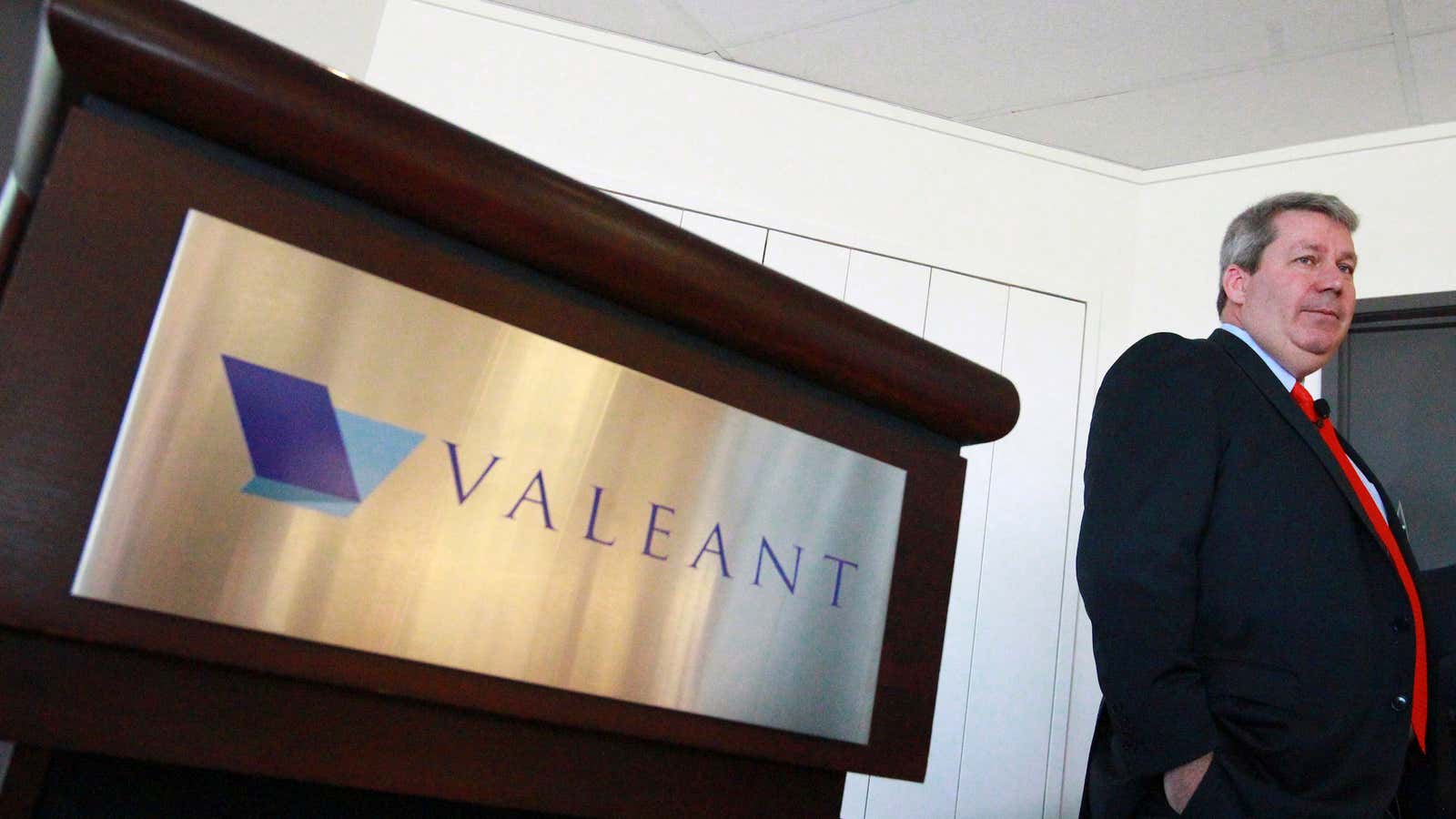Public fury over astronomical drug price hikes was directed at Turing Pharmaceuticals in September, when CEO Martin Shkreli raised the price of a drug used to treat AIDS patients and others with depressed immune systems by 5000%. But the company most affected by the backlash may actually be another drug maker, called Valeant.
While Turing’s example was extreme, Valeant’s price increases this year have been more consistent and impactful (paywall); an outlier even among aggressively profit-driven pharmaceutical companies, Valeant’s business model depends, at least in part, on buying other firms and marketed drugs, then using price hikes, an aggressive sales strategy, and cuts to research and development, to ensure profits.
Because of its reputation for price increases, Valeant has become a focal point in the debate over pharmaceutical pricing. Last week the company announced it had been subpoenaed by Congress over pricing practices.
The company appears to be taking congressional scrutiny and the still unlikely threat of regulatory changes extremely seriously. Yesterday, during the company’s quarterly earnings call, CEO J. Michael Pearson acknowledged that the company’s strategy will have to change. And, he says, Valeant is not the only one:
Well, you just have to read the newspapers and I think it’s clear that the pharmaceutical industry has been aggressively sort of attacked for past pricing actions and that’s not just Valeant, but I think it’s all companies. I do think given that environment, the pricing that pharmaceutical companies will take in the future will be more modest, and that we built that into our forecast for next year. I think we assume no more than 10% realized price for any of our products.
(A realized price increase is the revenue that a company receives from a wholesale price hike, after accounting for discounts to governments and insurers, and medicine provided at reduced price to people with lower incomes.)
Public outcry appears to have worked, at least in this case. On the call, Pearson attempted to correct the record on the company’s pricing policy, arguing that price hikes have been less extreme and less central to Valeant’s success than has been argued elsewhere (paywall). But he also proposed a 10% cap on realized increases for the year, promised that focus on internal R&D will grow, and suggested that M&A will likely be muted next year—though that’s also likely due to the company’s heavy debt load and depressed share price, as well.
Despite Valeant’s excellent last quarter, which beat analyst’s projections on revenue, stock has plunged further from its already pretty low level, and is now down over 30% from its highest year:
“Given the evolution of our product mix coupled with the recent events, it is likely that we will pursue fewer, if any, transactions that are focused on mispriced products,” Pearson said during the call. And as other companies answer tough questions about their own pricing behavior, Valeant’s actions may ripple outward through the industry.
The fact that Valeant is stepping back from its aggressive M&A strategy may dampen the whole market going forward, and could depress the recently frothy market for early stage biotech IPOs, whose prospects are often dependent on the potential for acquisition. All this will add to a spreading sense of unease, in an environment where even relatively minor bad news can send a buoyant stock price spiraling downwards.




